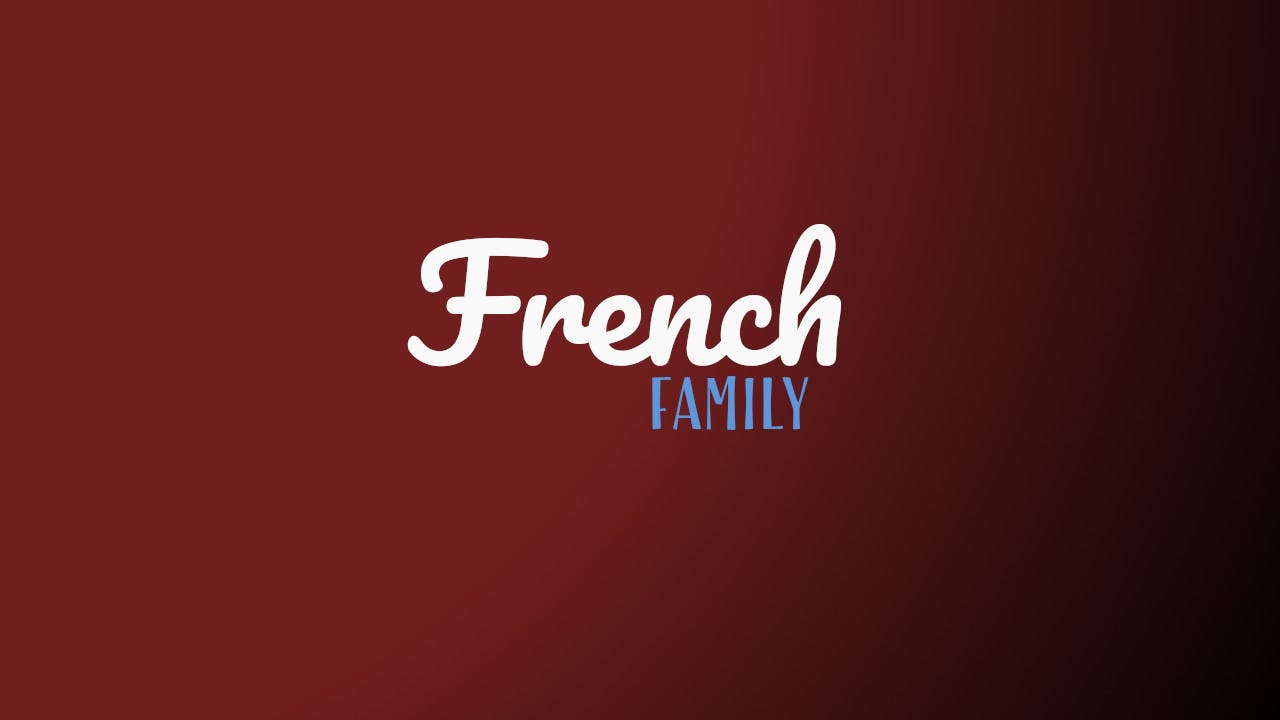How To Say Family In French (+ Name Your Family Members)
Bonjour à tous.
In this lesson, I'll cover the different terms for family members and loved ones, while diving into some cultural aspects related to family in France.
In France, family ties are highly valued and often celebrated through various traditions and events, such as family gatherings and shared meals.
It's not uncommon for extended family members to live close to each other, and family visits are an integral part of daily life.
In this lesson, you'll be better equipped to express these relationships in French.
Keep in mind that certain expressions and words used for family members might differ depending on the region in France, but the vocabulary we'll cover in this lesson will help you communicate effectively in most situations.
Whether you're learning French to connect with family members, prepare for a trip to France, or to broaden your language skills, this lesson will provide you with the essential vocabulary and cultural insights needed to navigate the fascinating world of French family life.
Let's get started.
How do you say family in French?
The word for "family" in French is famille.
It uses the feminine article la.
Family members in French
Here's a full list of all immediate and distant family members in French with their English equivalents:
| French | English |
|---|---|
| la famille | family |
| les parents | parents |
| la mère | mother |
| le père | father |
| les enfants | children |
| la fille | daughter |
| le fils | son |
| la sœur | sister |
| le frère | brother |
| la femme | wife |
| le mari | husband |
| les grands-parents | grandparents |
| la grand-mère | grandmother |
| le grand-père | grandfather |
| les petits-enfants | grandchildren |
| la petite-fille | granddaughter |
| le petit-fils | grandson |
| la tante | aunt |
| l'oncle | uncle |
| la cousine | female cousin |
| le cousin | male cousin |
| la nièce | niece |
| le neveu | nephew |
| la belle-mère | mother-in-law |
| le beau-père | father-in-law |
| la belle-fille | daughter-in-law |
| le beau-fils | son-in-law |
| la belle-sœur | sister-in-law |
| le beau-frère | brother-in-law |
| les arrière-grands-parents | great-grandparents |
| l'arrière-grand-mère | great-grandmother |
| l'arrière-grand-père | great-grandfather |
| l'arrière-petite-fille | great-granddaughter |
| l'arrière-petit-fils | great-grandson |
| la demi-sœur | half-sister |
| le demi-frère | half-brother |
| les beaux-parents | parents-in-law |
Sample sentences and dialogues
Here are some sample sentences related to family in French:
Je m'ennuie de ma famille et de mes amis.
Ma mère me manque beaucoup.
Voici ma sœur et mon frère.
Le nom de mon neveu est John ; le nom de ma nièce est Sarah.
J'ai vingt ans ; mes cousins ont tous les deux vingt-et-un ans.
Mon père est un vendeur et voyage beaucoup. Il me manque.
Mes deux grands-parents sont toujours vivants.
Ma mère va se promener.
Ma fille va aller à l'université l'année prochaine.
Quel âge a votre fille ?
A note about French families
French life centers around the family, work and school, in that order. Parents are very involved in their children's lives, and are still fairly strict.
Children are expected to Se comportez comme il faut (behave as they should) or soyez sage (be good), and they work hard at school.
Families take long three week or one month vacations in the summer, all together. Many families will have parents or grandparents in the country that they will visit on weekends.
Children are expected to go on these visits with no protests.
Many upper and middle class families may have a maid (la bonne), but children help with the housework, and the mother does the cooking, usually from scratch (maybe with a little help from one of the fine shops for fancy items like pate).

SUBSCRIBE: